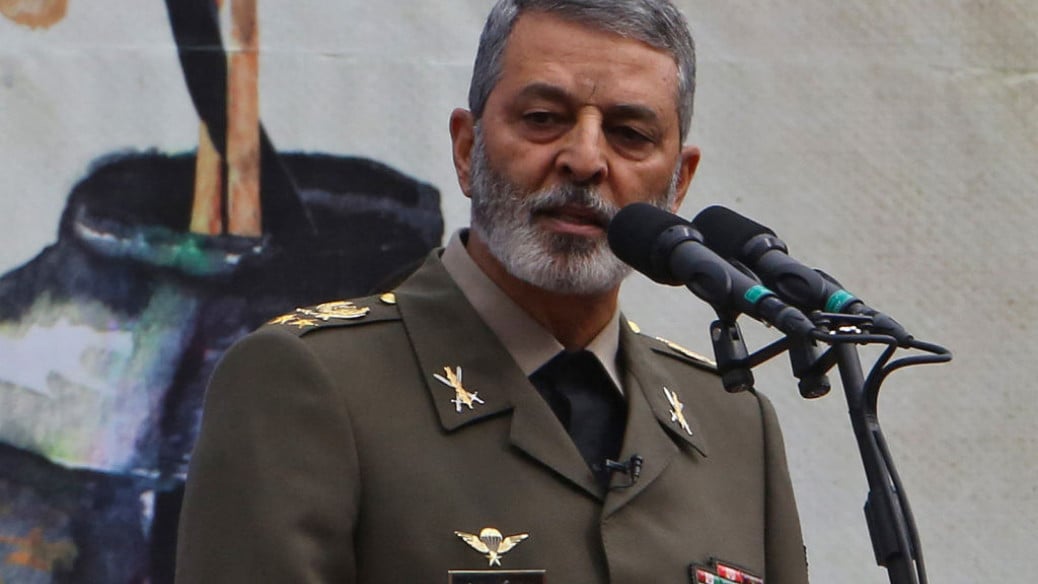
TEHRAN, June 29, 2025 (BSS/AFP) - Iran on Sunday said it was not convinced
Israel would abide by a ceasefire that ended their 12-day war this week.
The most serious escalation to date between the arch-foes erupted on June 13,
when Israel launched a bombing campaign in Iran that killed top military
commanders and scientists linked to its disputed nuclear programme.
Israel said its aim was to keep the Islamic republic from developing a
nuclear weapon -- an ambition Tehran has consistently denied, insisting it
has the right to develop nuclear power for civilian purposes like energy.
The fighting derailed nuclear talks between Iran and the United States, a
staunch ally of Israel's.
"We did not start the war, but we have responded to the aggressor with all
our power," Iran's armed forces chief of staff, Abdolrahim Mousavi, was
quoted as saying by state television, referring to Israel.
"We have serious doubts over the enemy's compliance with its commitments
including the ceasefire, we are ready to respond with force" if attacked
again, he added, six days into the ceasefire announced by US President Donald
Trump.
- Deadly war -
In a letter to UN Secretary-General Antonio Guterres published on Sunday,
Iran demanded that the United Nations recognise Israel and the United States
as being to blame for this month's war.
"We officially request hereby that the Security Council recognise the Israeli
regime and the United States as the initiators of the act of aggression and
acknowledge their subsequent responsibility, including the payment of
compensation and reparations," Iranian Foreign Minister Abbas Araghchi wrote
in the letter.
The United States joined Israel in its campaign during the war, carrying out
strikes on three key facilities used for Iran's atomic programme.
Trump has threatened further strikes should Iran enrich uranium to levels
capable of manufacturing nuclear weapons.
According to the International Atomic Energy Agency, Iran had enriched
uranium to 60 percent in 2021, well above the 3.67 percent limit set by a
2015 agreement from which the United States unilaterally withdrew in 2018.
To make a weapon, Iran would need to enrich uranium up to 90 percent.
Israel has maintained ambiguity about its own atomic arsenal, neither
officially confirming nor denying it exists, but the Stockholm International
Peace Research Institute has estimated it has 90 nuclear warheads.
According to Iran's health ministry, at least 627 civilians were killed and
4,900 injured during the 12-day war with Israel.
Retaliatory missile attacks by Iran on Israel killed 28 people, according to
Israeli authorities.
During the war, Iran arrested dozens of people it accused of spying for
Israel, also saying it seized equipment including drones and weapons.
Iran's parliament on Sunday voted to ban the unauthorised use of
communications equipment, including tech billionaire Elon Musk's Starlink
satellite internet service, according to the official news agency IRNA.
- 'Unacceptable'-
An Israeli strike on Tehran's Evin prison during the war killed at least 71
people, Iran's judiciary said Sunday.
The strike on Monday destroyed part of the administrative building at Evin, a
large, heavily fortified complex in the north of Tehran, which rights groups
say holds political prisoners and foreign nationals.
According to judiciary spokesman Asghar Jahangir, the victims at Evin
included administrative staff, guards, prisoners and visiting relatives as
well as people living nearby.
French Foreign Minister Jean-Noel Barrot said on Monday that detained French
nationals Cecile Kohler and Jacques Paris, held at Evin for three years, were
not believed to have been harmed by the Israeli strike, which he described as
"unacceptable".
On Tuesday, a day after the strike, the judiciary said that the Iranian
prison authority had transferred inmates out of Evin prison, without
specifying their number or identifying them.
The inmates at Evin have included Nobel Peace Prize laureate Narges Mohammadi
as well as several French nationals and other foreigners.